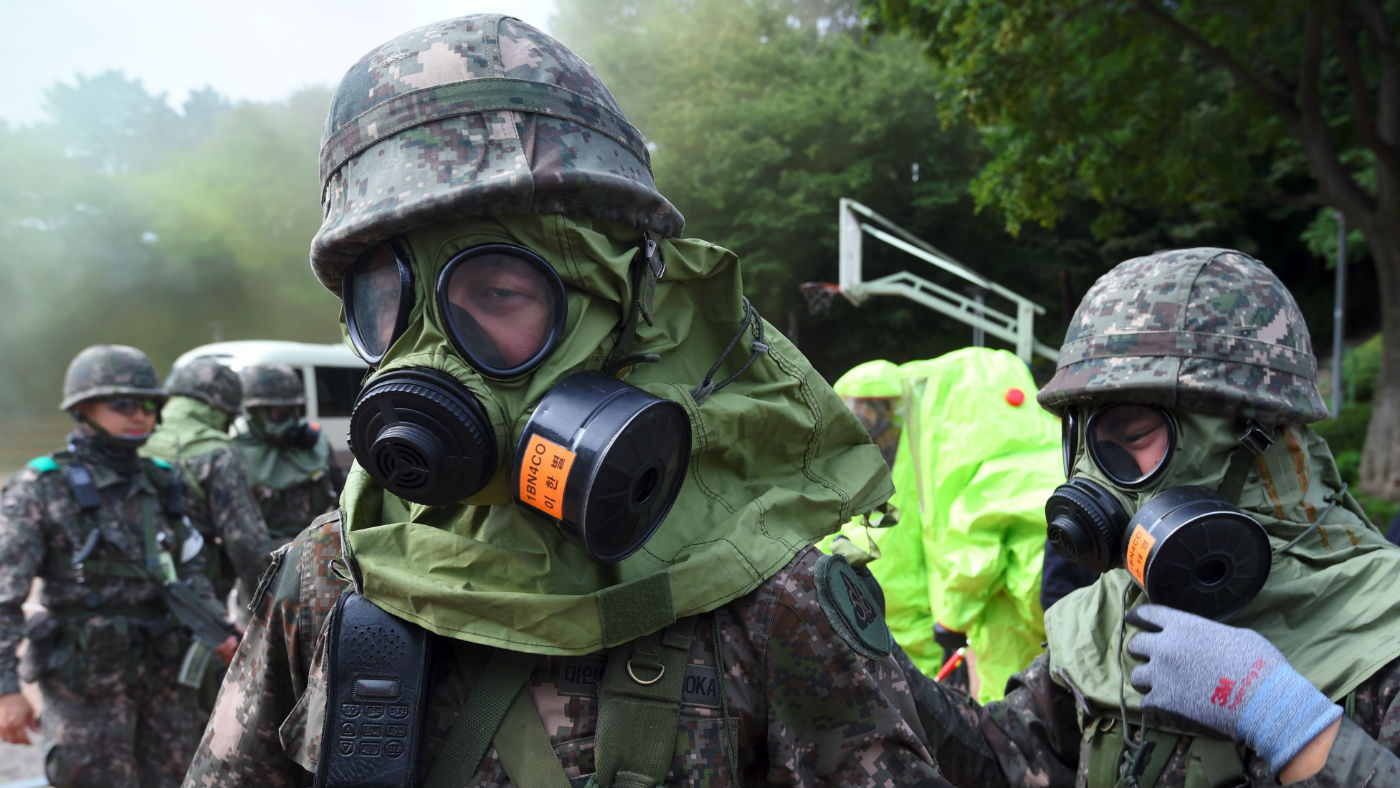Millions of Tokyo residents to take part in nuclear drills
Evacuation routine to simulate a North Korean attack on the Japanese capital

A free daily email with the biggest news stories of the day – and the best features from TheWeek.com
You are now subscribed
Your newsletter sign-up was successful
Millions of Tokyo residents are to take part in a series of evacuation drills simulating a nuclear attack by North Korea.
The Sankei Shimbun newspaper has reported plans by the city authorities and government to carry out a number of exercises early in the new year in response to increasingly belligerent behaviour from North Korea, which has launched several ballistic missiles over Japan.
Towns facing the Korea Peninsula have been instructing residents how to seek shelter in the event of a missile attack but this will be the first time a major Japanese city will conduct such exercises.
The Week
Escape your echo chamber. Get the facts behind the news, plus analysis from multiple perspectives.

Sign up for The Week's Free Newsletters
From our morning news briefing to a weekly Good News Newsletter, get the best of The Week delivered directly to your inbox.
From our morning news briefing to a weekly Good News Newsletter, get the best of The Week delivered directly to your inbox.
Despite Japan’s Prime Minister Shinzo Abe calling on local authorities across the country to identify underground facilities or buildings that are sufficiently sturdy to withstand a missile attack, “the Japanese government has until now resisted calls for major cities to carry out similar exercises on the grounds that they would alarm the public”, says The Daily Telegraph.
The paper says that, given Pyongyang’s worsening relations with surrounding nations and advances in nuclear weapons and missile systems, “many in Japan believe evacuation exercises for the public are a prudent precaution”.
A study by analysts at the US-Korea Institute at Johns Hopkins University and published in October suggested that a 250 kiloton airburst over the centre of Tokyo would cause nearly 698,000 fatalities and injuries to a further 2.47 million people.
A free daily email with the biggest news stories of the day – and the best features from TheWeek.com
-
 The Olympic timekeepers keeping the Games on track
The Olympic timekeepers keeping the Games on trackUnder the Radar Swiss watchmaking giant Omega has been at the finish line of every Olympic Games for nearly 100 years
-
 Will increasing tensions with Iran boil over into war?
Will increasing tensions with Iran boil over into war?Today’s Big Question President Donald Trump has recently been threatening the country
-
 Corruption: The spy sheikh and the president
Corruption: The spy sheikh and the presidentFeature Trump is at the center of another scandal
-
 US, Russia restart military dialogue as treaty ends
US, Russia restart military dialogue as treaty endsSpeed Read New START was the last remaining nuclear arms treaty between the countries
-
 What happens now that the US-Russia nuclear treaty is expiring?
What happens now that the US-Russia nuclear treaty is expiring?TODAY’S BIG QUESTION Weapons experts worry that the end of the New START treaty marks the beginning of a 21st-century atomic arms race
-
 Epstein files topple law CEO, roil UK government
Epstein files topple law CEO, roil UK governmentSpeed Read Peter Mandelson, Britain’s former ambassador to the US, is caught up in the scandal
-
 Iran and US prepare to meet after skirmishes
Iran and US prepare to meet after skirmishesSpeed Read The incident comes amid heightened tensions in the Middle East
-
 Israel retrieves final hostage’s body from Gaza
Israel retrieves final hostage’s body from GazaSpeed Read The 24-year-old police officer was killed during the initial Hamas attack
-
 China’s Xi targets top general in growing purge
China’s Xi targets top general in growing purgeSpeed Read Zhang Youxia is being investigated over ‘grave violations’ of the law
-
 Panama and Canada are negotiating over a crucial copper mine
Panama and Canada are negotiating over a crucial copper mineIn the Spotlight Panama is set to make a final decision on the mine this summer
-
 Why Greenland’s natural resources are nearly impossible to mine
Why Greenland’s natural resources are nearly impossible to mineThe Explainer The country’s natural landscape makes the task extremely difficult